
Imagine taking a deep breath of fresh air and having that unpolluted taste on your tongue while you are listening to the natural undisturbed sounds of Mother Earth. Nothing but the waves of the ocean crashing into shorelines or echoes from the heartbeat of mountain peaks, while animals chatter in their natural habitats and the wind singing her songs of freedom. A magnificent landscape that is so beautiful and enchanting that belongs to no one, nor does it have a human Indigenous population. Most people would believe this place to not exist in our world, but then again, most people of the world have never been to Antarctica.
Antarctica is often imagined as a distant land that has no connection to the rest of the world creating the illusion that the continent is remote from everyday human life. Despite Antarctica’s remote location she is a crucial regulator of the planet’s climate and holds immense significance for the well-being of all forms of life on Mother Earth. The continent, a largely pristine wilderness that belongs to no country, is not only home to a wide range of fauna and marine species, but she also contains approximately 60% of the world’s fresh water; and water is life.
Indigenous people across the world hold ancestral knowledge systems that are deeply rooted in reciprocity and recognize that everything in creation has a spirit; from the rocks on the shorelines, to the rivers that flow and to the land we all live on. The Earth is not just a lifeless rock; she is the source of all life which interweaves ecosystems and humanity together. Reciprocity and respect are the pillars of Indigenous knowledge systems, if we nurture and care for Mother Earth she will in turn take care of us. This worldview showcases the close relationship humanity has with all forms of creation such as the air we breathe, the water we drink, the food we eat and most importantly it highlights our complex relationship with Mother Earth.
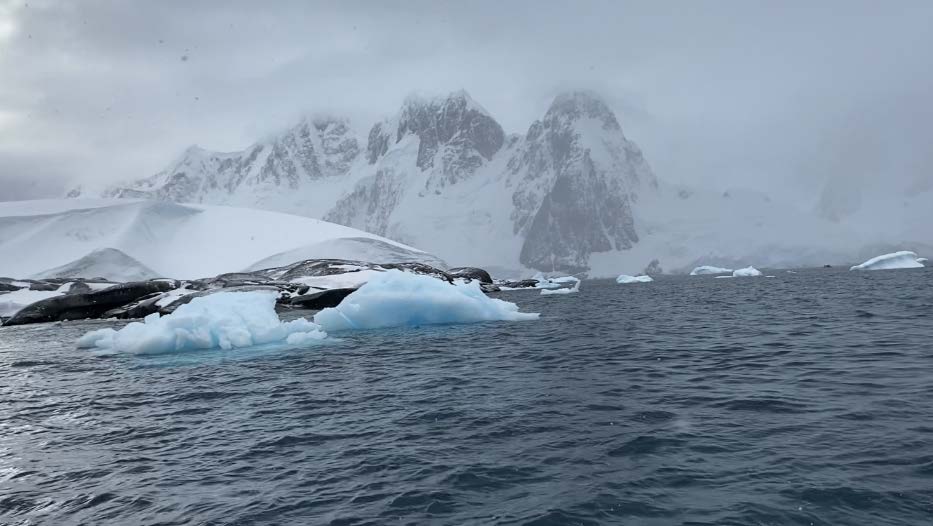
Creation stories are a vital part in the history of Indigenous people around the world; they are not just “myths” but living philosophies that are foundational to Indigenous cultures and its teachings. Oral traditions often include natural laws and responsibilities on our relationships with all forms of creation and the spirit world. There are Indigenous nations in the Southern Hemisphere that have cosmologies and oral histories that resonate with the elements of Antarctica’s environment, one element that is sacred amongst all peoples of the world is water. Our relationship with water is essential for life to continue to flourish, the interconnectedness of the world’s water systems rely on Antarctica to help regulate Mother Earths temperature along with the ocean currents. Water and Antarctica are interwoven together, and it is our shared responsibility as humanity to care for and uphold this relationship which grants us the precious gift of life.
One way to conceptualize Antarctica is to describe the continent as a living untouched part of Mother Earth’s soul; to recognize Antarctica as a living autonomous entity with legal rights. This is the concept behind Antarctic Rights which is a global initiative that stems from Indigenous Knowledge Systems to campaign for the recognition of
Antarctica as a living entity and to have representation in global decision-making processes.
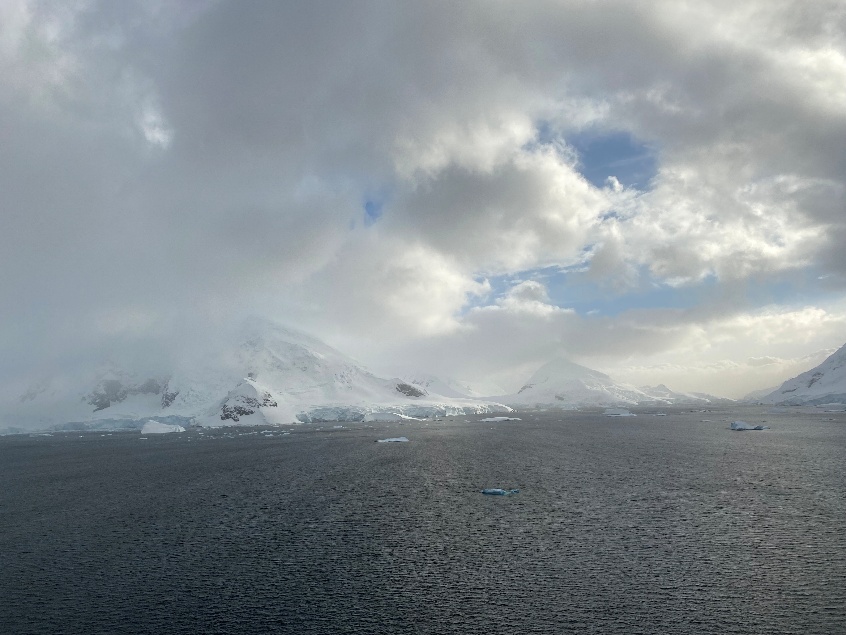
Antarctic Rights is working to build worldwide support for the adoption and implementation of an Antarctica Declaration which calls on all nations and international bodies to recognize Antarctica as an independent legal entity with the right to be represented in decision-making that affects the continent —such as climate change negotiations— and to regenerate and evolve free of human disruption. The Antarctic Declaration aims to complement existing treaties and would establish ethical standards for assessments and reform of current governance structures. Antarctic Rights is currently seeking organizations and individuals to join the group to form an Antarctic Alliance that will help to collectively address the pressing challenges facing Antarctica.
This initiative is part of a rapidly growing global Rights of Nature movement which stems from Indigenous Knowledge Systems transforming how humans relate to Nature. Over 200 laws and policies that recognize Nature’s rights already exist in nearly 40 countries. For example, the Constitution of Ecuador, and laws in Aotearoa / New Zealand recognize that rivers, mountains, and forests are not property to be exploited, but legal subjects which humans have a legal duty to respect and protect. Antarctic Rights can be used as a tool to advocate for the continent’s best interests and inspire pivotal paradigm shifts in governance structures/policies.
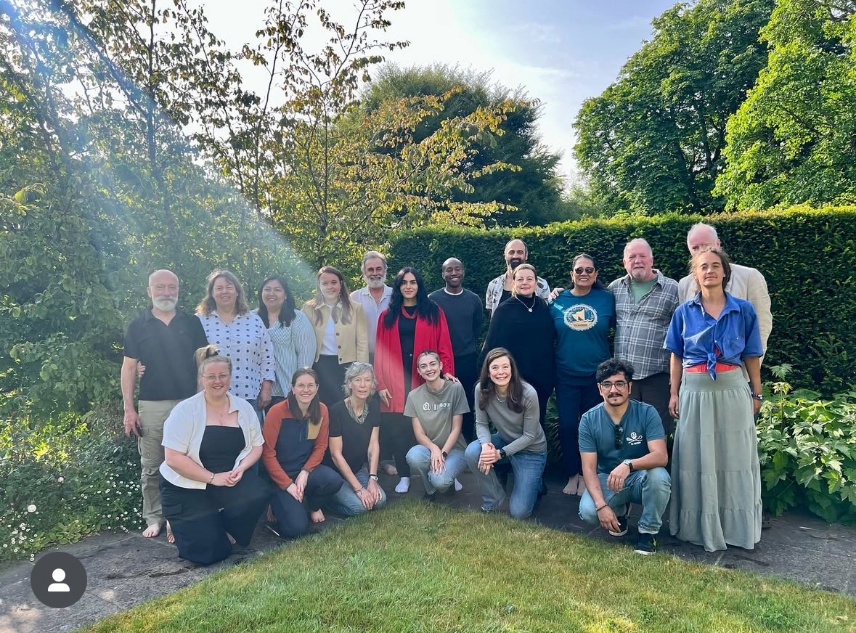
The Antarctic Treaty System is another example of a successful tool which addresses issues regarding Antarctica, its primary purpose is to ensure that Antarctica is used for peaceful purposes only, to prevent international conflicts and to promote scientific cooperation. Although the Antarctic Treaty System was revolutionary and has been successful in the preservation of Antarctica there are gaps within the initiative that have limited ability to prevent harmful activities or hold violators accountable.
Antarctic Rights doesn’t aim to replace the Antarctic Treaty System; its purpose is to work alongside one another for Antarctica’s well-being. Visualize two canoes padding beside each other down the stream of a river and the destination is ensuring ethical standards in the protection and preservation of the Antarctic. One canoe is Antarctic Rights, and the other is The Antarctic Treaty System, both are useful tools in creating accountability for actions harming Antarctica and yet are very different in structure. Even though these initiatives are similar in nature they are ultimately different from one another but they both share the same goal; each canoe is traveling down a shared path in unity to ensure the protection and preservation of the entire continent and its waters.
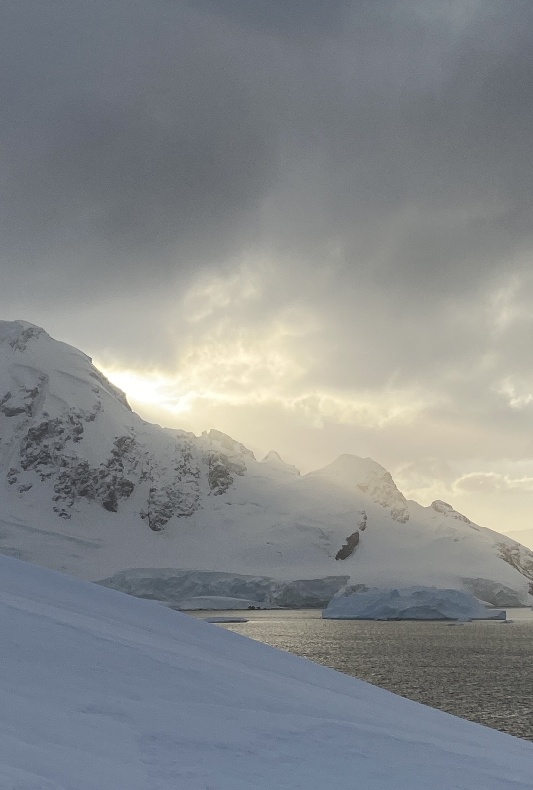
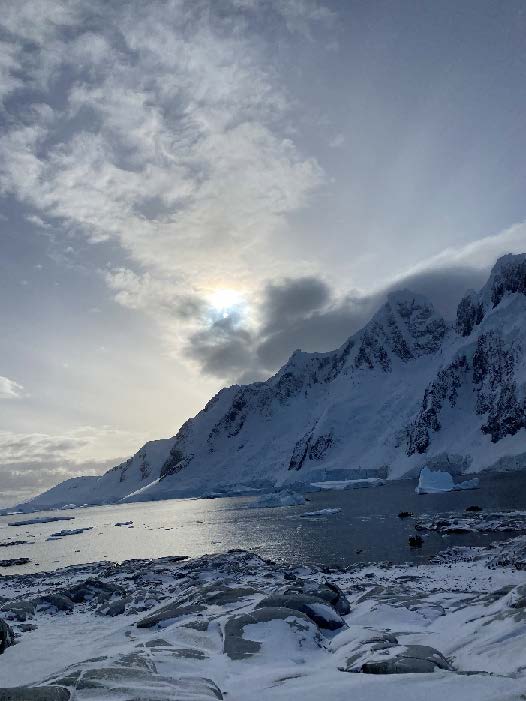
For decades, the effects of climate change have been more visible in the Antarctic due to the glaciers and ice shelves melting and breaking off prematurely. Sea ice is disappearing which critically disrupts ecosystems, food chains and rises global sea levels. If these patterns continue within the next century it will lead to catastrophic and unimaginable changes to our world, our coastal cities and our populations. Antarctic Rights have successfully purposed Motion 055 to the IUCN for the “Recognition of the Rights of Antarctica”, and they will vote at the 2025 IUCN World Conservation Congress in Abu Dhabi to pass this motion. This monumental step forward seeks to ensure that Antarctica’s voice is heard and respected.
Antarctic Rights represents more than a legal or political framework; it is supporting global climate initiatives that recognizes the continents irreplaceable ecological and scientific value. Most importantly it promotes living in good relations with our surrounding ecosystems and binding together nations in a shared responsibility of stewardship between humanity and the natural world we all live in. By joining the Antarctic Alliance, you can help ensure that Antarctica is protected and remains a symbol of collective stewardship that is essential for the well being of Mother Earth. Protecting and respecting Antarctica is not only a matter of justice, but it is also essential to building a livable climate future for the next seven generations and beyond.
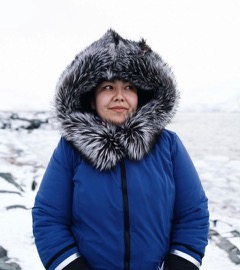
Danii Kehler is a Plains Cree woman from Kawacatoose First Nations in Treaty 4 territory in Canada and is an Indigenous Artist and the Researcher/Policy writer for the Autonomy department at the First Nations University of Canada. She is a founding member on the executive committee for Antarctic Rights and a judge on the International Rights of Nature Tribunal. Danii has been advocating for Indigenous representation in various sectors to create holistic and sustainable solutions for the betterment of Mother Earth.

